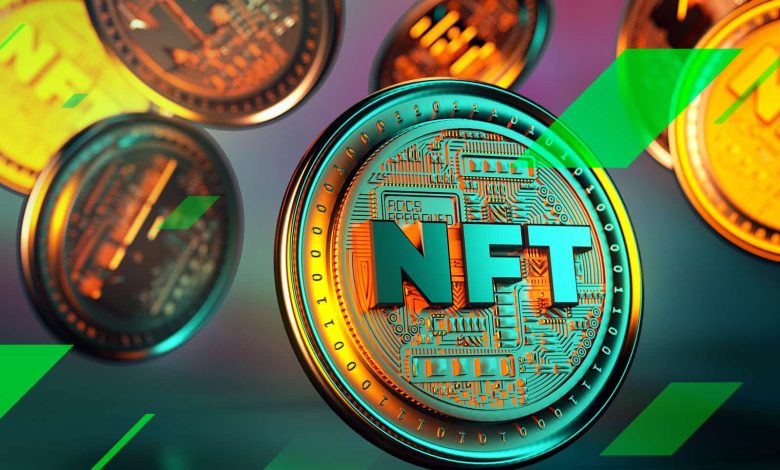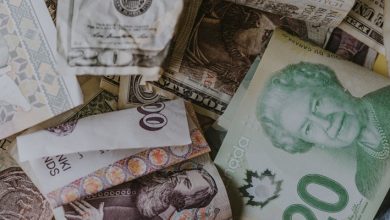Crypto Daily Digest: Legal Challenges Facing NFT Marketplaces

- Understanding the legal landscape of NFT marketplaces
- Key legal challenges impacting the NFT industry
- Navigating the regulatory hurdles in the world of NFTs
- Legal considerations for NFT creators and buyers
- The evolving legal framework for NFT marketplaces
- Addressing copyright and ownership issues in the NFT space
Understanding the legal landscape of NFT marketplaces
When it comes to the legal landscape of NFT marketplaces, there are several key considerations that both buyers and sellers need to be aware of. One of the main challenges facing NFT marketplaces is the issue of copyright infringement. Since NFTs are digital assets that can represent various forms of creative work, such as art, music, and videos, there is a risk that the creator’s intellectual property rights could be violated.
Another legal concern in the NFT space is the potential for fraud and scams. Due to the decentralized nature of blockchain technology, it can be difficult to verify the authenticity of an NFT and the identity of the seller. This lack of transparency opens the door for bad actors to take advantage of unsuspecting buyers.
Additionally, there are regulatory uncertainties surrounding NFT marketplaces, especially in terms of taxation and securities laws. As governments around the world grapple with how to classify and regulate NFTs, market participants must stay informed about the evolving legal landscape to avoid running afoul of the law.
Key legal challenges impacting the NFT industry
Key legal challenges impacting the NFT industry include intellectual property rights, securities regulations, money laundering, and consumer protection laws. These challenges have arisen due to the unique nature of NFTs, which are digital assets representing ownership of a specific item or piece of content. As NFTs gain popularity, regulators are grappling with how to classify and regulate them within existing legal frameworks.
One of the primary legal challenges facing the NFT industry is the issue of intellectual property rights. NFTs are often used to buy and sell digital art, music, and other creative works. However, questions have been raised about who owns the underlying intellectual property rights to these works, especially when they are tokenized and sold as NFTs. This has led to disputes over copyright, trademark, and other intellectual property issues.
Another key legal challenge for NFT marketplaces is compliance with securities regulations. Some NFTs are being marketed as investment opportunities, leading regulators to question whether they should be treated as securities. This has implications for how NFTs are bought, sold, and traded, as well as the responsibilities of NFT marketplaces to ensure compliance with securities laws.
Money laundering is also a concern in the NFT industry, as the anonymous and decentralized nature of blockchain technology can make it difficult to trace the source of funds used to purchase NFTs. Regulators are increasingly focused on preventing money laundering through NFT transactions and are exploring ways to enhance transparency and accountability in the industry.
Consumer protection laws are another area of legal challenge for NFT marketplaces. As NFTs become more mainstream, there is a growing need to protect consumers from fraud, misrepresentation, and other deceptive practices. Regulators are working to establish guidelines for NFT marketplaces to ensure that consumers are informed and protected when buying and selling NFTs.
Navigating the regulatory hurdles in the world of NFTs
When it comes to navigating the regulatory hurdles in the world of NFTs, marketplaces must be diligent in ensuring compliance with various legal requirements. This includes but is not limited to know-your-customer (KYC) and anti-money laundering (AML) regulations, as well as intellectual property laws.
Marketplaces must also consider the tax implications of NFT transactions, as the lack of clear guidance from tax authorities can create uncertainty for both buyers and sellers. Additionally, the decentralized nature of many NFT platforms can make it challenging to enforce regulatory compliance.
One way that marketplaces can address these challenges is by implementing robust compliance programs that incorporate smart contracts and other technological solutions to automate regulatory processes. By leveraging blockchain technology, marketplaces can enhance transparency and traceability, which can help mitigate regulatory risks.
Furthermore, marketplaces should stay informed about the evolving regulatory landscape surrounding NFTs, as authorities around the world are increasingly scrutinizing this space. By proactively engaging with regulators and seeking legal counsel, marketplaces can position themselves to navigate regulatory hurdles effectively and build trust with users.
Legal considerations for NFT creators and buyers
Legal considerations for NFT creators and buyers are crucial in navigating the complex landscape of the digital art market. As the popularity of NFTs continues to rise, it is essential for both creators and buyers to understand the legal implications of their transactions.
For NFT creators, it is important to consider copyright issues when minting and selling their digital assets. Ensuring that they have the necessary rights to the content they are tokenizing can help prevent potential legal disputes down the line. Additionally, creators should be aware of any licensing agreements or contracts that may impact the ownership and distribution of their NFTs.
On the other hand, buyers should be cautious when purchasing NFTs, as ownership rights can vary depending on the platform and terms of sale. Conducting due diligence on the authenticity of the NFT and the reputation of the creator can help mitigate the risk of purchasing counterfeit or stolen digital assets. Buyers should also be aware of any potential tax implications associated with buying and selling NFTs.
Overall, staying informed about the legal considerations surrounding NFTs is essential for both creators and buyers to protect their interests and investments in the rapidly evolving digital art market. By being proactive and seeking legal advice when needed, individuals can navigate the legal challenges facing NFT marketplaces with confidence and peace of mind.
The evolving legal framework for NFT marketplaces
The legal framework surrounding NFT marketplaces is constantly evolving as regulators grapple with the unique challenges posed by this emerging technology. One of the key issues facing NFT marketplaces is the question of ownership rights and intellectual property. As NFTs are essentially digital assets, determining who owns the rights to a particular NFT can be complex and may require new legislation to clarify.
Another area of concern for regulators is the potential for money laundering and other illicit activities on NFT marketplaces. Because transactions on these platforms are often anonymous and decentralized, there is a risk that they could be used to facilitate illegal activities. Regulators are working to develop guidelines to prevent this type of abuse while still allowing for innovation in the space.
Additionally, there are questions surrounding consumer protection and investor rights in the NFT marketplace. As more people invest in NFTs, there is a need for regulations that ensure transparency and fairness in transactions. This includes measures to prevent fraud and scams, as well as mechanisms for resolving disputes between buyers and sellers.
Addressing copyright and ownership issues in the NFT space
Addressing copyright and ownership issues in the NFT space is crucial for the long-term sustainability of the market. As non-fungible tokens continue to gain popularity, there is a growing concern about intellectual property rights and ownership of digital assets. NFT marketplaces must implement robust mechanisms to verify the authenticity of the assets being traded and ensure that creators are properly compensated for their work.
One of the main challenges facing NFT marketplaces is the issue of copyright infringement. With the ease of copying and sharing digital files, there is a risk that unscrupulous individuals may attempt to sell counterfeit NFTs without the consent of the original creators. To combat this, marketplaces need to establish clear guidelines for verifying the authenticity of NFTs and enforcing copyright laws.
Another important aspect to consider is the issue of ownership rights. When purchasing an NFT, buyers must be certain that they are acquiring the full rights to the digital asset. This includes the right to display, distribute, and modify the asset as they see fit. Marketplaces should provide clear information on the ownership rights associated with each NFT to avoid any confusion or disputes in the future.
Overall, addressing copyright and ownership issues in the NFT space requires a collaborative effort between NFT marketplaces, creators, and buyers. By establishing clear guidelines, implementing robust verification processes, and educating users about their rights and responsibilities, the NFT market can continue to thrive in a sustainable and ethical manner.



